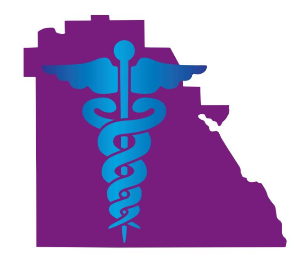Polk County Approves $4 Million for Indigent Health Care
by PAUL CATALA
It’s funding that’s being called a local healthcare “safety net” for the underinsured and uninsured in Polk County.
In November, Polk County Commissioners unanimously approved more than $4 million in funding for primary care, dental services and behavioral health services for Indigent Healthcare Services.
During a Nov. 22 meeting, two contracts with Central Florida Health Care Inc., were approved. One was to provide primary care services to eligible low-income county residents with a total not to exceed $2 million annually; the other was to provide dental services to eligible low-income county residents not to exceed $1.5 million annually under the Polk HealthCare Plan. That plan is the foundation of Polk County’s local healthcare safety net program funded by indigent healthcare sales tax funds.
In addition, commissioners approved an amendment to the contract with the Winter Haven Hospital Center for Behavioral Health to provide behavioral health services, with a total not to exceed $1,022,625 annually.
Polk County’s Indigent Healthcare Services’ local healthcare safety net program is funded by a one-half cent sales surtax. As of 2020, close to 37 percent of Polk County’s residents use Medicare or Medicaid, and 11.5 percent have no insurance.
Joy Johnson, Polk County Health and Human Services Administrator, says primary care, dental services, and behavioral health services are available for full-time Polk County residents who are uninsured or underinsured with an income at or below 200 percent of the Federal Poverty Level.
“Polk County is a medically underserved area and a medical provider shortage area,” she says. “We have a high number of people who are medically underserved, and we don’t have enough providers.”
According to information provided by Johnson, Polk County is designated by the federal government as a “Health Professional Shortage Area,” with one primary care physician for every 2,080 Polk residents; one behavioral health provider for every 1,070 residents; and one dentist for every 2,930 residents.
The Polk HealthCare Plan provides comprehensive healthcare services to low-income, uninsured Polk County residents. It is not “health insurance,” but is health coverage without premiums or deductibles. It offers a network of roughly 800 public-private healthcare providers with approximately 300 access points across the county and serves Polk HealthCare Plan members with either primary care, specialty care, behavioral health, urgent care, labs and radiology services, and hospital services, as well as access to prescription medications.
Johnson says the $4 million is another component of the indigent health care safety net grants and aid, offering another way to access health services through other organizations outside of the Polk HealthCare Plan. Those include Winter Haven Center for Behavioral Health and Central Florida Health Care.
Additionally, Johnson says Polk HealthCare Plan case managers can refer residents based on their “qualifications, needs, and requests.”
Based on the 2020 Census, there are about 50,000 of 90,000 people in Polk County who are potentially eligible for safety-net healthcare programs.
Polk County — through the indigent healthcare sales tax program — has been able to increase funding and access to behavioral health services with approximately $11 million budgeted this fiscal year, a 66 percent increase from 2021.
To use part of the recently approved funding, residents are vetted to see if they’re eligible for the Polk Healthcare Plan. Some people may be a bit over income limits for that plan, but not other programs through indigent healthcare and can be referred to organization clinics for services. Organizations can be reimbursed based on contractual agreements with Polk County.
Johnson says the county lags behind the state and nation in the number of people with private medical and dental coverage, and there are more people on Medicare and Medicaid than the national average.
“And with our population growing, we definitely need to stay the course and plan for that added population and continue funding these services,” she says.
The committed indigent healthcare funding will help keep more of Polk County’s residents secured with the healthcare help they need, says George Lindsey, chairman of the Polk County Commission.
“The Polk County Board of County Commission is pleased to provide the indigent healthcare services funded and approved by citizen referendum,” he says. “We also appreciate the hard work and dedication of the Indigent Health Care Citizens Oversight Committee.”
The $4 million Indigent Healthcare Services funding will help contract local medical provider communities to provide services, and “it’s good for the economy,” adds Johnson.
“Our hope is to get more people connected to services they’re not currently getting connected or getting the healthcare services that they need,” says Johnson, who is in her 25th year working for Polk County. “There are a number of ways that people can access care, and we want to make sure they’re connecting to where they need to be. We’re going to continue to push money out the door to support our medical community and serve those people who need it.”
For more information, contact Indigent Health Services at 863-533-1111 or go to www.polk-county.net/health-services.
